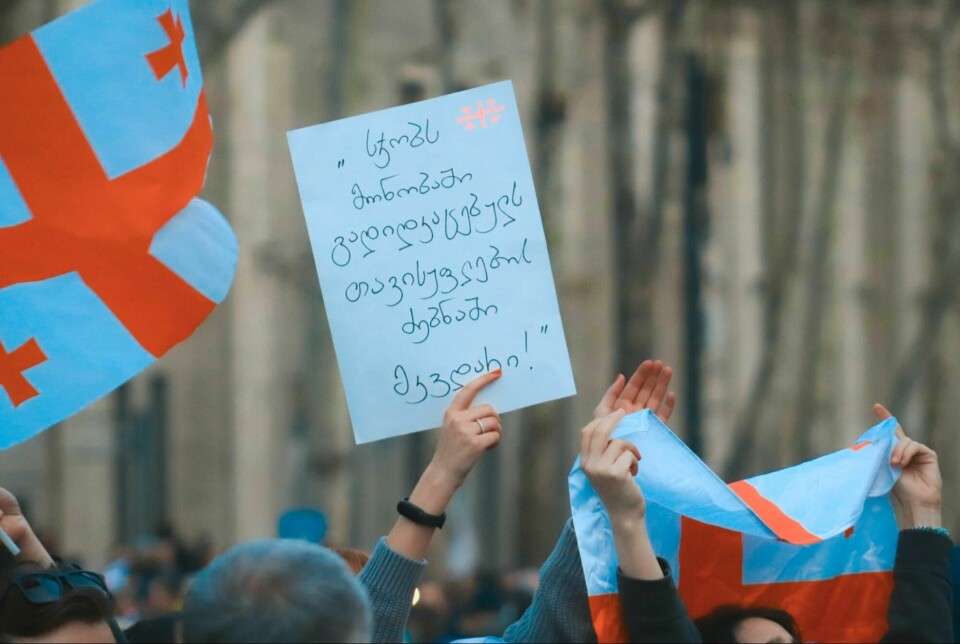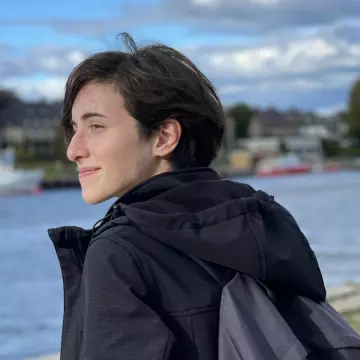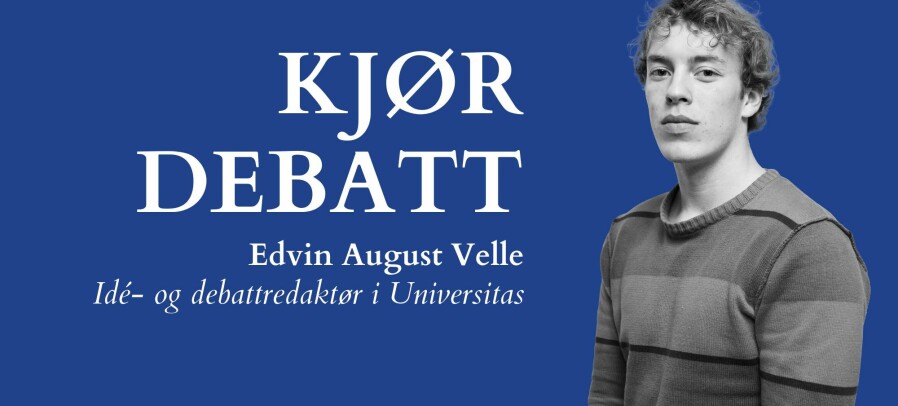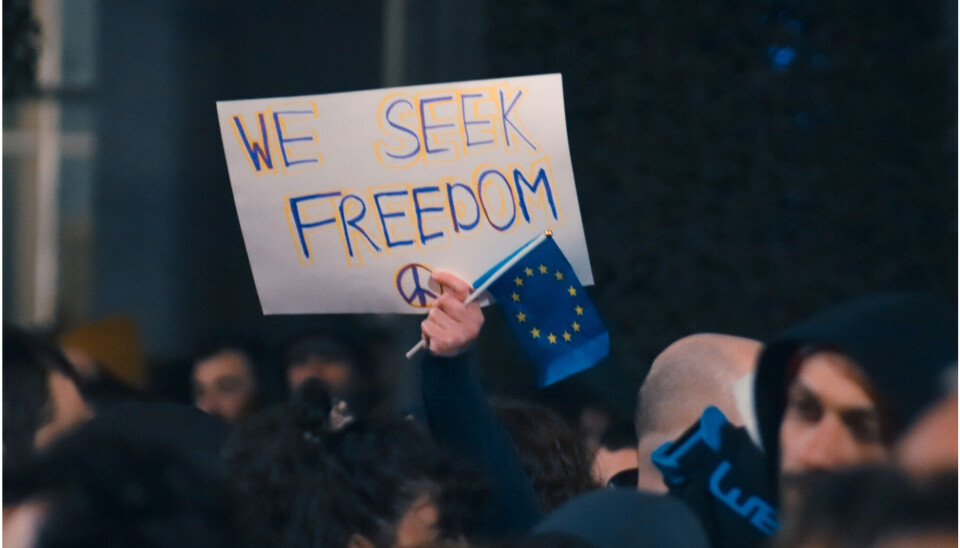
Norwegian Insight into the Youth Activism in Afghanistan and Georgia — Can We Contribute to Their Freedom?
Why is it important to support young freedom activists from outside the EU/EEA and how to do it.
According to the Freedom House 2023 report, during the last 50 years, 84 of 195 unfree countries have become free, many of those through withstanding serious political, social, and economic pressures. However, more and more countries at the same time have remained partly free instead of moving toward full democratisation. What role do student activists play in these processes, and how is it reflected in the Norwegian context? To find out, I interviewed an Afghan and a Georgian student living in Oslo, as well as the president of the Norwegian Students’ and Academics’ International Assistance Fund, or simply SAIH.
"I needed a Slight Push, But Now I'm Ready," — What Drives the Youth in Afghanistan?
Afghanistan — a Country Derailed from Its Progressive Path
The treasured culture and the long history of Afghanistan are being forgotten under the shadow of the Taliban's regime. Even though It is not been so long since the Taliban once again took over in 2021 and diminished all means of progress including literacy and universal education in the country. Throughout this short time, Afghan people faced extreme economic crises, famine, and a total knockdown of human rights — especially women's. Women were left without the right to secondary education, and the universities got closed for them eventually; they lost their voice, freedom, and all the opportunities for personal development.
“The village we lived in was attacked by the Taliban, so we had to flee the area,” an Afghan girl, A.N., for she asked to remain anonymous, recalls the story of her family’s immigration to Norway around 16 years ago. The main reasons why her parents brought children to Norway were: the possibility for two daughters to get a good higher education and to avoid early marriage, and, of course, significantly low crime rates in Norway. A.N. was only 6 years old at that time and doesn’t have many memories of Afghanistan, but her family carries and shares with her the love for their people and rich, ancient culture.
As A.N. describes it, Afghanistan was on the track towards a progressive world, improving its freedom and education system and developing human rights, but “people were just robbed of their lives by the Taliban, and it is so sad, because the country could have gone in the same direction as Norway, for example. Because of the Taliban, these extremists, it completely turned upside down, to where it is now.”
Afghan Youth Tries to Increase Awareness, and It Works
According to the United States Institute of Peace, banning Afghan women from accessing the public sphere and trying to silence them proved not to be as easy as the extremist forces would have hoped. The women and girls of Afghanistan, together with men, inspired large waves of protests across the country.
We have been repeatedly seeing youth demonstrations, where young women and men were protesting the cruel restrictions, but the ruthless violence by the Taliban followed. The protests in the streets got very dangerous.
"I know that there were many more protests back then than there are now," A.N. says. "I think most people are just scared for their life now, ‘cause Afghanistan is going through both economic crises, and there is such a big famine there right now! Even if they wanted to, they still have to care for their families, care for their loved ones, because that is the first priority, and I think that is why the activism out on the streets may have stopped by now."
Nevertheless, youth kept resisting the regime by taking their protests underground and spreading the information through social media: “Under this assault, women this year [of 2022 — journalist’s note, here and further in the article] began holding smaller protests. ... women are gathering in offices or homes to produce photos and videos in which, masked for security, they present speeches and signs with their demands for justice and then share them via text messages, WhatsApp, Twitter or Facebook,” according to the United States Institute of Peace.
Although the activists were getting nothing but violence from the Taliban, their attempt to increase awareness about unthinkable life conditions reached the right people outside Afghanistan.
SAIH Works for Students' Right to Education
Hector Ulloa, the president of SAIH (the Norwegian Students’ and Academics’ International Assistance Fund), revealed that through the Students at Risk program (StAR), over 100 student activists from all over the world have come to Norway to finish their studies, including some from Afghanistan and Iran. The Students at Risk program allows persecuted student activists to come to Norway with a scholarship and finish their studies.
Through a large network of regional partner organisations, SAIH acquires information about student activists whose lives or education are threatened by the regime in their countries: “It is a human rights organisation that needs to nominate the student. So the process of selection is always happening behind the scenes with the contacts and the networks we have. We are trying to reach out to different organizations and get information on possible candidates for the StAR program,” says Ulloa.
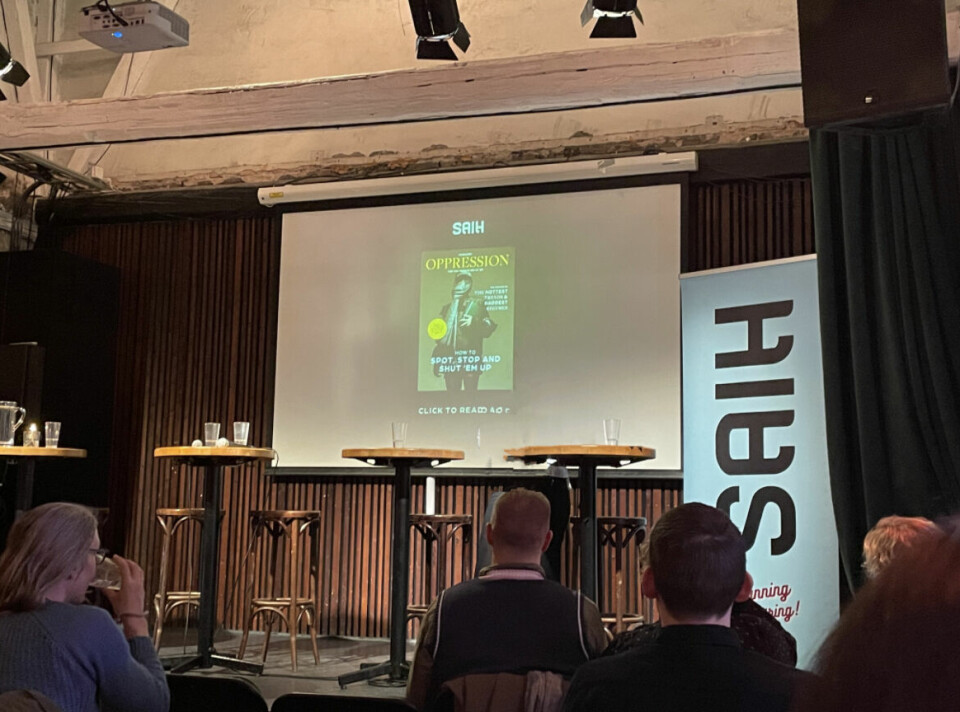
SAIH also organised events to raise awareness about the situation in Afghanistan, and they are trying to do more for Afghan youth: “As for right now, we are looking at the possibilities to support education initiatives for female students from Afghanistan.”
“Education for liberation” is the philosophy of SAIH, borrowed from the Brazilian pedagogue Paulo Freire. “The unique process that happens in higher education institutions, where you create new knowledge and develop critical thinking, it is usually students, the first ones that start societal change,” highlights Ulloa. According to him, if we reinforce higher education, “eventually we will have some individuals that will challenge society, because they will understand and become aware of the chains that are holding them back.”
Some Other Things You Could Do As Well
"In some ways, I've tried to make a difference, in the way that I want people to be able to have food, so I donate each month to an organisation towards food production for Afghan people," mentions A.N.
She thinks it is not enough, as she speaks of the importance of spreading the information through media: "As an Afghan living in Norway, I never really felt like I belonged here. It is kinda frustrating, the fact that no one really... Seems like no one really cares about it, and whenever I talk about it, of course, people give me sympathy but, that is all. It is what it is..."
What she dreams about is that one day she will be able to see her country with her own eyes again and experience its beauty and homeyness without the fear of the Taliban:
"Some nights when I think about it, I would want to call out the protests here in Oslo to be able to fight for it in some way. I would stand there and I would scream loudly! To fight for both the young adults who want to go to school but don't have the opportunity, and generally just the Afghan people, cause they've gone through so much, and I'm not able to… and I'm scared too because I don't know how to do it myself," as A.N. says these words, she begins to cry.
Finally, she declares: "Honestly, from now on I'm gonna fight for my own country. I have to do that. I needed a push, and you were my push. Thank you."
Even in a Democracy, Freedom Needs Protection — an Example from Georgia
Youth’s Voice is Stronger When Heard by Everyone
"For the first time since the Georgian Dream party came to power in 2012, young people mobilized en masse, protesting a bill that threatens the country's future in Europe," writes the French newspaper Le Monde.
According to Radio Freedom, the "controversial new law ... would have forced entities with over 20 percent of overseas funding to register as ‘foreign agents’,” emphasising that the law was “almost universally seen as an approximation of Russian ‘foreign agents’ legislation, which has been widely criticized for facilitating a crackdown on NGOs, independent media, and critics of the Kremlin."
Tens of thousands of Georgians of all generations stood in the streets in March 2023 to defend their political freedom and democracy, but teenagers and young adults were at the core of the protests. Their message was clear and sound: "Georgia is Europe," "We Seek Freedom," and "No to the Russian Law.”
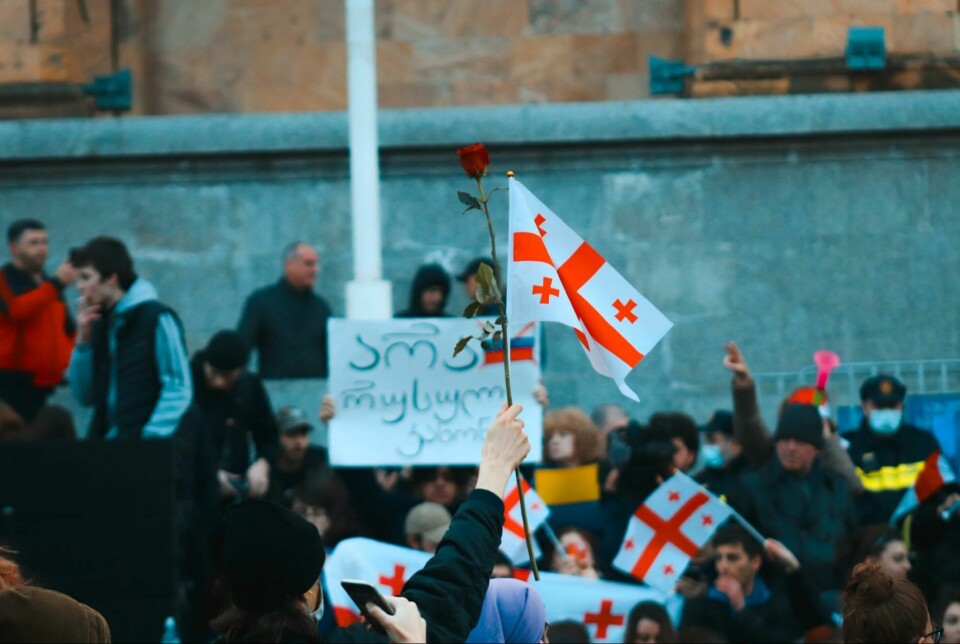
Hence, many international organisations worldwide, as well as foreign politicians and officials, answered people's concerns. "International organizations have voiced concern over the draft law, saying it runs against Georgia’s democratic development," (ABC News) and "Some 400 nongovernmental organizations and media groups signed a petition declaring that ‘Russian law is not the will of Georgia’” (New York Times). After so much controversy and international backlash, the Georgian government was forced to drop the law, which was considered a great success for the large-scale democratic demonstrations. The people’s voice was loud enough this time, but the future is yet to be decided, as Georgia is waiting for its status of EU candidacy to be discussed this year, and the people stay alert as their freedom as a democratic society still feels uncertain.
Free Georgian Youth Being at Risk of Unfolding Autocracy
A 25-years-old Georgian international student in Norway, G.A., admits that she saw the law as a threat of autocracy and got mixed feelings about the happenings in Georgia:
"I was happy to, at last, see so many people acting united for one goal, but at the same time, I was sad for being so far away, when my friends were standing there together, dealing with the tear gas; I felt heartbroken that I couldn't stand next to them to contribute to my country's well-deserved progress."
G.A. came to Norway in August as a Master’s student at the faculty of Political Sciences. During the March protests, she was in the middle of her studies in Oslo, unable to physically join the protests in her hometown Tbilisi — the capital of Georgia.
As she describes it, this was a case when the youth finally took the initiative and started a political change: "I believe it was the first important step toward real freedom, as it was a movement against the law which could drag the country into an authoritarian regime. We were able to turn this around, the youth like us could do that, and it gives me hope."
The threat of autocracy that the bill might have been implying is mentioned by Radio Freedom as well: "Whatever Moscow's imprimatur on the Georgian bill, it was widely known as ‘the Russian law’ and seen as just the kind of creeping authoritarianism that Russian President Vladimir Putin has inspired in at least a handful of post-Soviet republics."
SAIH — Early Signs of the Emerging Autocracy
Hector Ulloa from SAIH names some warning signs that can point towards the the risk of an emerging autocracy in countries normally considered to be free or democratic:
"There is now some research, like the Academic Freedom Index, where we can see the correlation between the degree of academic freedom you have and the quality of your democratic governance. So if you monitor academic freedom and attacks on the higher education community, usually you will be in a better position to identify early signs of autocratisation."
"So usually attacks to silence students, to silence academics, restrictions to the curriculum of what is being taught, ideological re-shaping of nationalistic narratives, are all examples of attacks on the higher education community that usually appear before you see more violent, open expressions of authoritarianism, like shutting down protests, sending political opponents to jail, trying to silence journalists, or suppress free media. So what we see is that it is important to measure attacks on academic freedom and education communities, even in more free societies," Ulloa says.
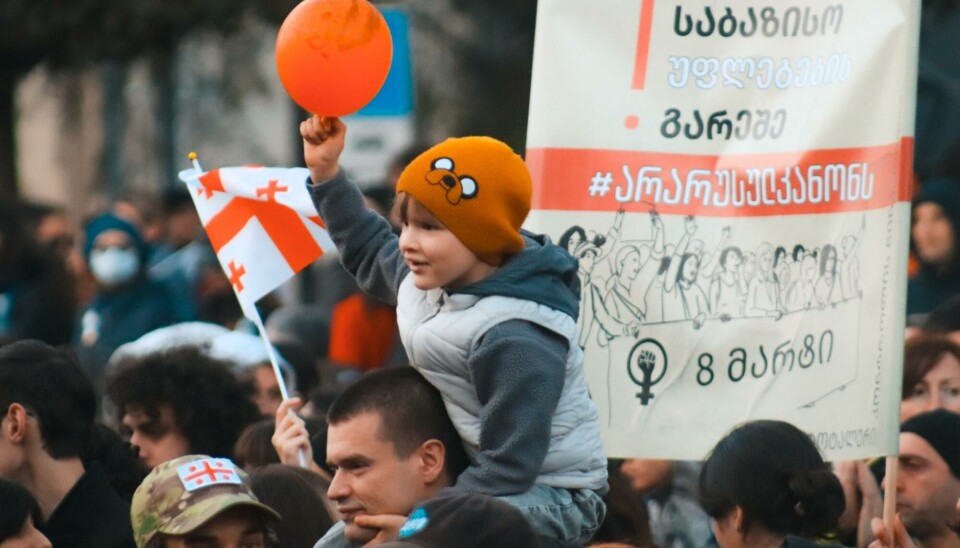
International media covering March events in Georgia noted the following risks the proposed bill might bring about, such as the decline of free media, deliberate criminalisation and delegitimisation of young activists and other opponents of the bill, the force used against democratically gathered peaceful activists, avoidance of debate and accountability by the government, etc. Here are some of those highlights:
- "Georgian authorities have used tear gas and water cannon ... against protesters who oppose a proposed law some see as stifling freedom of the press," ABC News.
- "Smarting from mass protests that led to a government climbdown last week, the Georgian ruling party found a culprit: what it said was a group of anarchists and satanists [referring to some teenage demonstrators and their parents], operating with a $100 million budget," Radio Freedom.
- "Georgian Dream [Georgian ruling party] and its People's Power offshoot have variously dismissed opponents to the law as members of a "radical opposition" or an out-of-touch NGO sector," Radio Freedom.
- "The vote, which was adopted in its first reading, was another sign of a rushed process that looked designed to avoid debate and accountability by a party that has governed in uncompromising fashion since the 2012 elections," Radio Freedom.
So, there might be a place to be concerned about whether current events uncover some risks to Georgian democracy, putting Georgian people, first of all, the students, in a more vulnerable position.
What Can a Resident of Norway Do To Back Up Activists Facing Similar Risks?
When feeling powerless because of being cut off from the centre of Georgian demonstrations, G.A. found out about Georgisk Forening i Norge - Kreba (the Georgian Association in Norway), which was organising a demonstration in support of the protesters near the Georgian Embassy in Oslo. Their goal, notes G.A., was to increase awareness about the Georgian people's solid European orientation and their determination to stand for their rights and future. "Kreba also wrote a notice for the Embassy, gathered signatures,” and, as much as she knows, “even met with some representatives of Norwegian political parties with the same goal — to increase awareness and make some impact on a political level." Considering the close partnership and cultural relations between the two countries, the organisation of similar events is even more important.
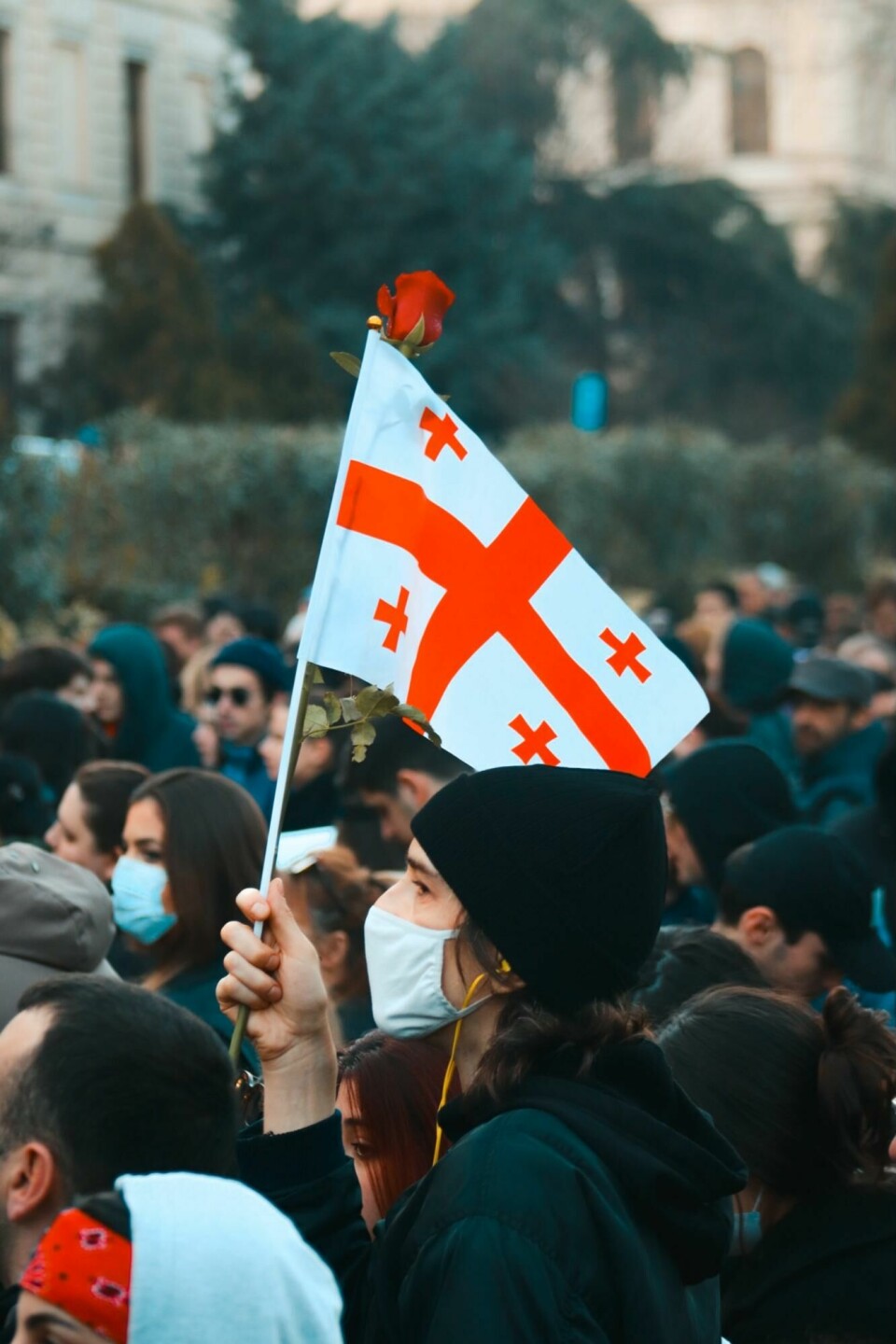
"I believe standing there on Rustaveli Avenue [the main street in Tbilisi, Georgia, near the parliament] would've been more decisive, but I got a feeling that we also helped from here, at least by spreading the information," says G.A.
In case the situation shows warning signs of student activists being under serious threat or risk due to their political activism, there are many other ways to help. In similar situations, SAIH suggests actively organising events and demonstrations in Norway, focusing on increasing awareness, and in case of need, referring to SAIH’s local chapters in Norway for support. In some cases, one can also contact SAIH with an individual letter or a project aiming for documenting specific cases of risk or offering a solution.
Why Is Student Activism So Distinct and Important?
G.A. used to think of her generation as progressive, but seeing the high political and social participation of Norwegian youth has made her believe in the power of youth’s voice and engagement even stronger. She notices that "the biggest tool Norwegian students use to empower changes is the press and the media." That is one reason why she is convinced that Georgians consider spreading the information very important now, although she doubts the impact of the media on the Georgian government will be as instant as it is in Norway.
The young Georgian in Norway sees youth in general as more resistant and determined: “If you spray the tear gas, they will say ‘okay,’ they will go for a moment, inhale the fresh air and come back; you strike with water cannon, they get wet, but they will change and come back right away. They never stop, they are invincible and unyielding, which is essential to achieve any goal. Youth in Georgia definitely has these qualities."
Overall, there are various reasons why student activism is often in a limelight today. Hector Ulloa notes two distinct reasons why SAIH focuses on studying and helping student activism specifically.
First, “in all continents and across history, you will find examples of student movements being the first ones to speak up against, let's say, colonisation in some periods, against foreign interventions threatening democracy of a country, for health care reforms to happen, for education to be accessible to everyone... It is usually students [who carry on these changes]. So we say student activists are an essential element for societies, and we need to protect them.”
Second, because of that important role of pushing society toward change, “they are in a vulnerable spot. It puts them in great danger if there is no one supporting their struggles because then they will be isolated and they will be taking a lot of risks. They are young, they do not have money, big networks, or experience. They are a very, very easy target for authoritarian regimes, and therefore we have to support and defend them,” concludes Ulloa.
